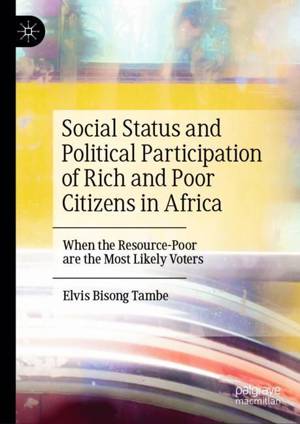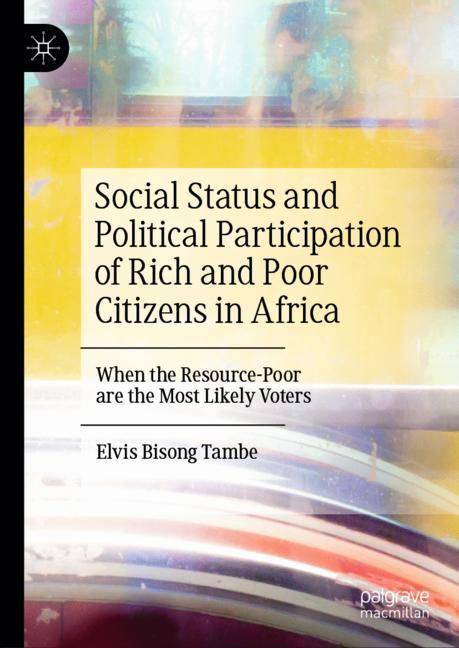
- Retrait gratuit dans votre magasin Club
- 7.000.000 titres dans notre catalogue
- Payer en toute sécurité
- Toujours un magasin près de chez vous
- Retrait gratuit dans votre magasin Club
- 7.000.0000 titres dans notre catalogue
- Payer en toute sécurité
- Toujours un magasin près de chez vous
Social Status and Political Participation of Rich and Poor Citizens in Africa
When the Resource-Poor Are the Most Likely Voters
Elvis Bisong TambeDescription
This book seeks to explore a fundamental obscurity in electoral behavior literature: while socioeconomic status is typically robustly and positively associated with a higher propensity for voting worldwide, the relationship in Africa is either negative or non-existent. Building upon the author's previous works relating to political participation, behavior and electoral processes, this work focuses specifically on 35 sub-Saharan African political system case studies and analyzes why resource-poor Africans tend to display greater electoral participation than their more comparatively affluent counterparts. Drawing from a methodological-theoretical framework utilizing Afrobarometer data and group mobilization theories such as the civic voluntarism model, electoral clientelism, democratic quality, preference theory and institutional perspectives, this book makes an original contribution to analyzing African regions less well-examined in existing comparative participatory political science literatures.
Spécifications
Parties prenantes
- Auteur(s) :
- Editeur:
Contenu
- Nombre de pages :
- 264
- Langue:
- Anglais
Caractéristiques
- EAN:
- 9783031523984
- Date de parution :
- 16-04-24
- Format:
- Livre relié
- Format numérique:
- Genaaid
- Dimensions :
- 148 mm x 210 mm
- Poids :
- 498 g

Les avis
Nous publions uniquement les avis qui respectent les conditions requises. Consultez nos conditions pour les avis.






